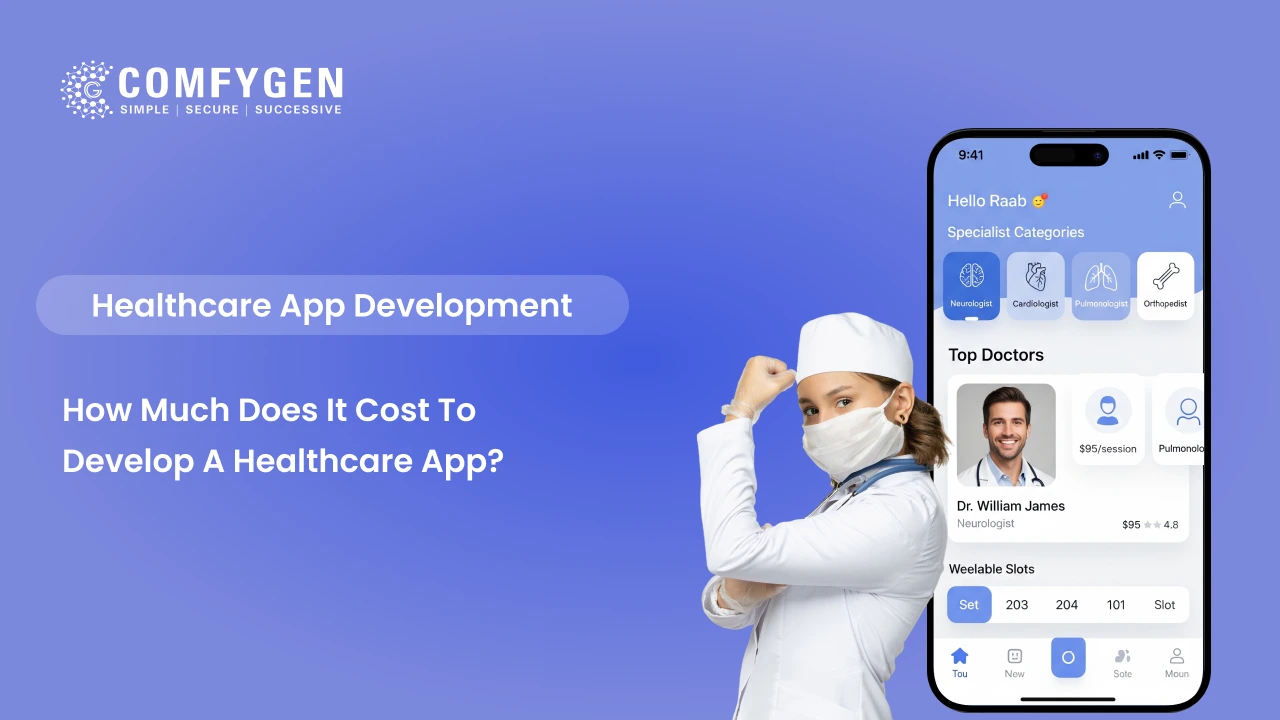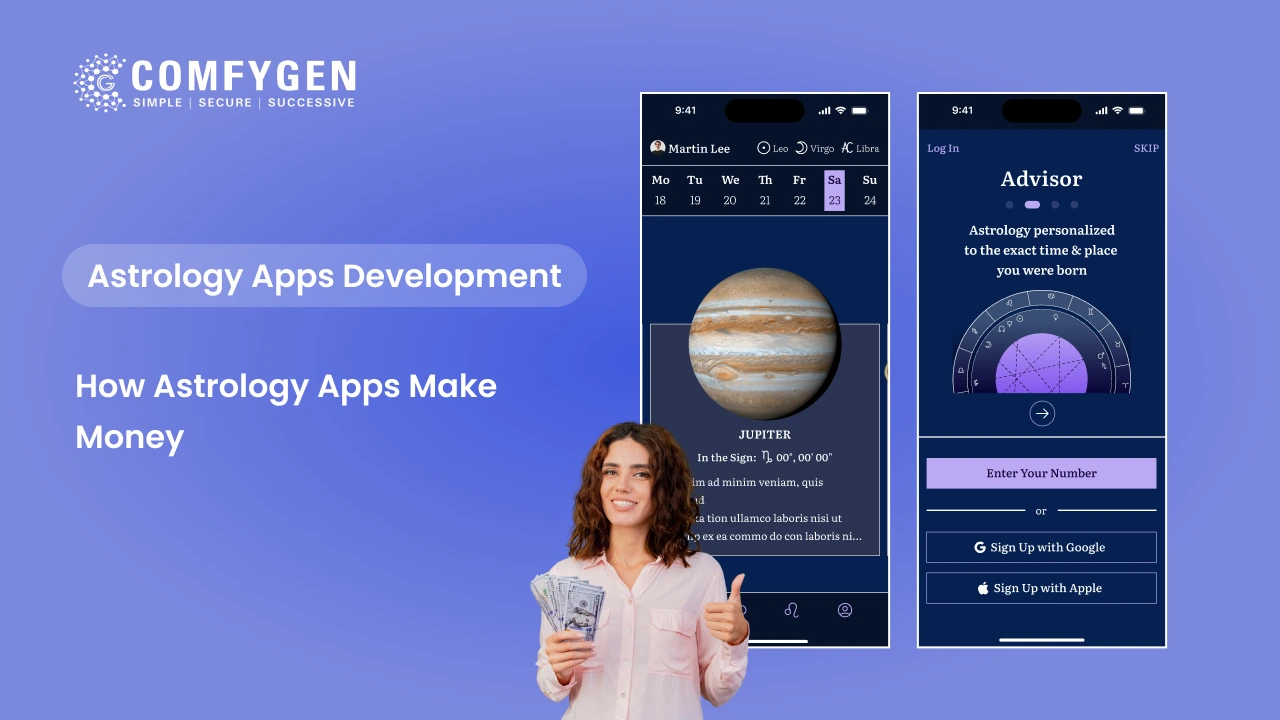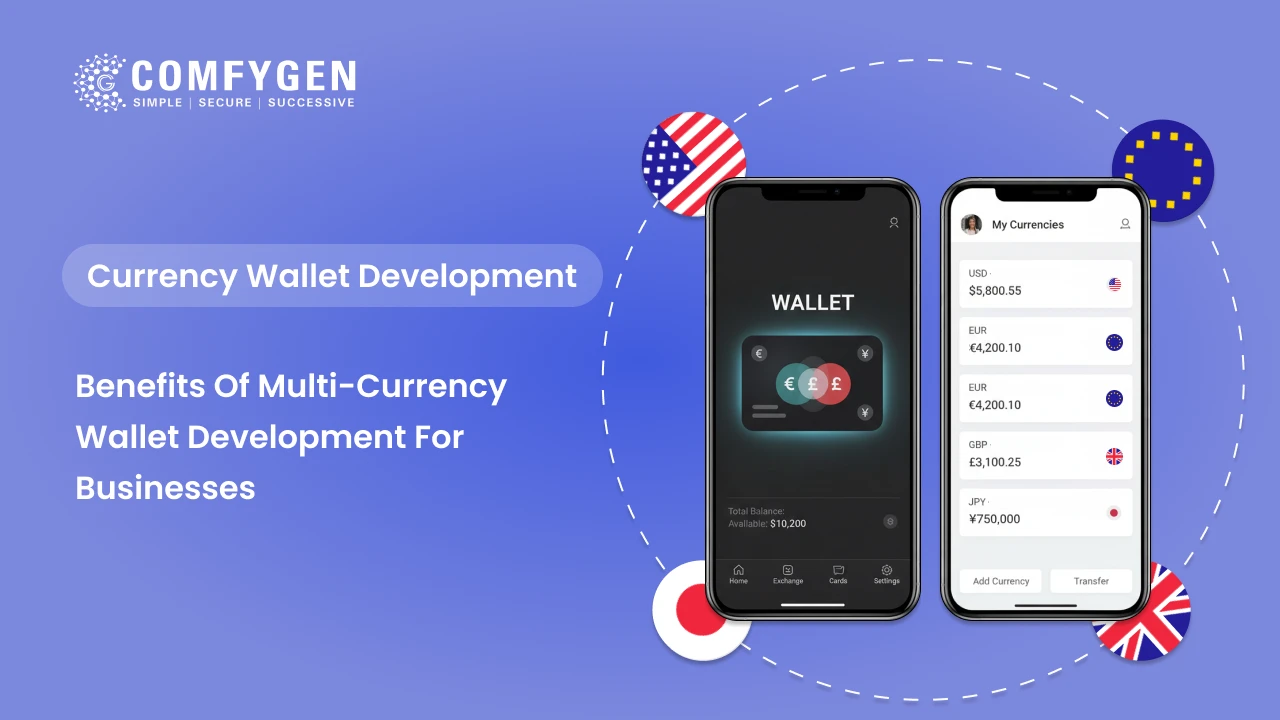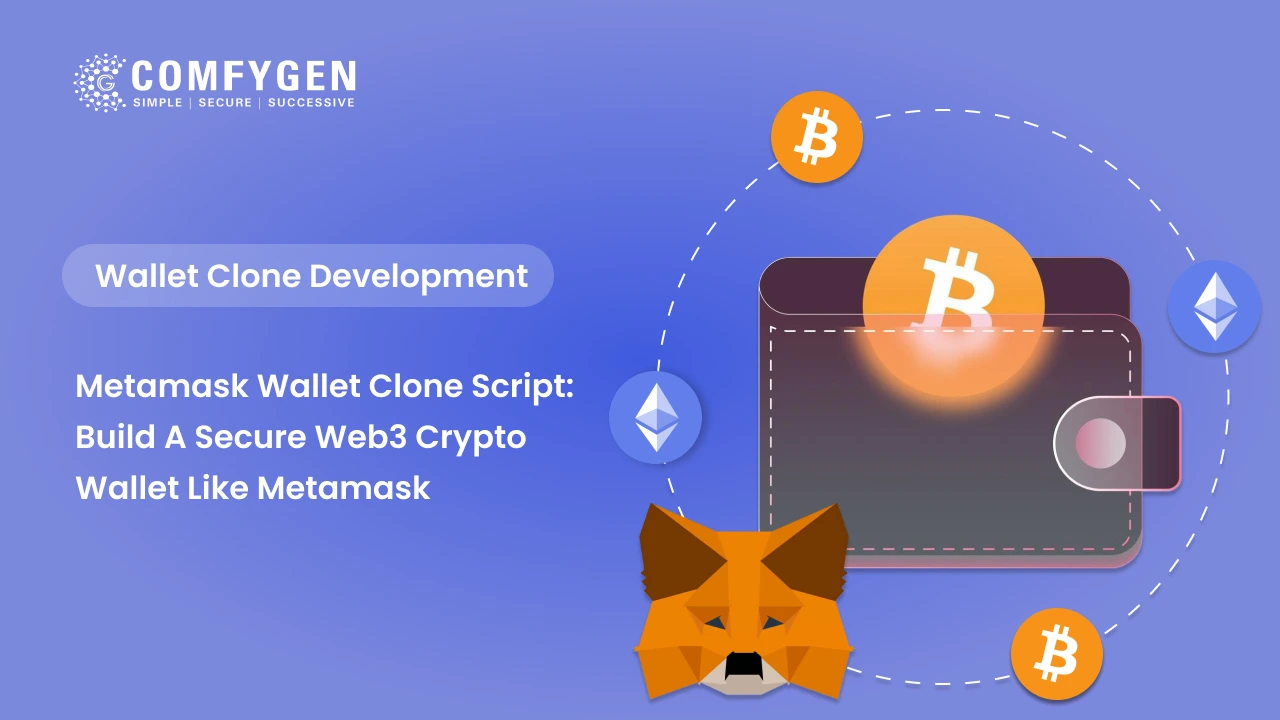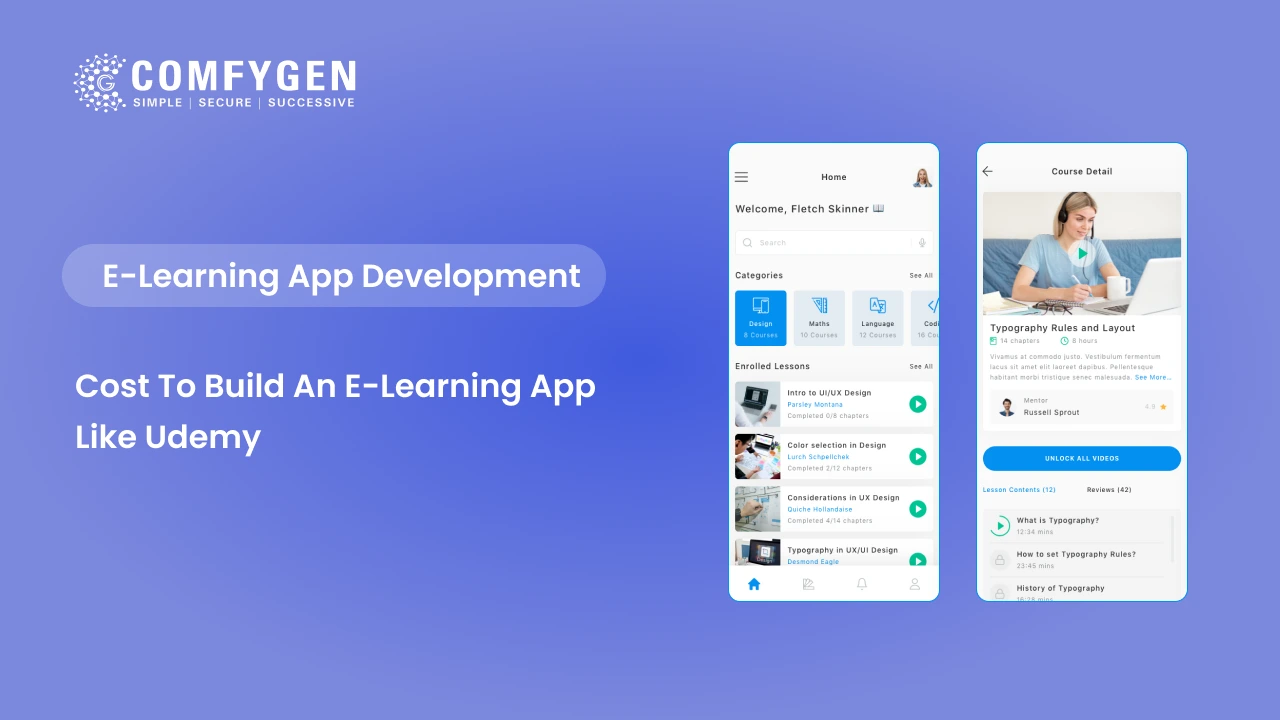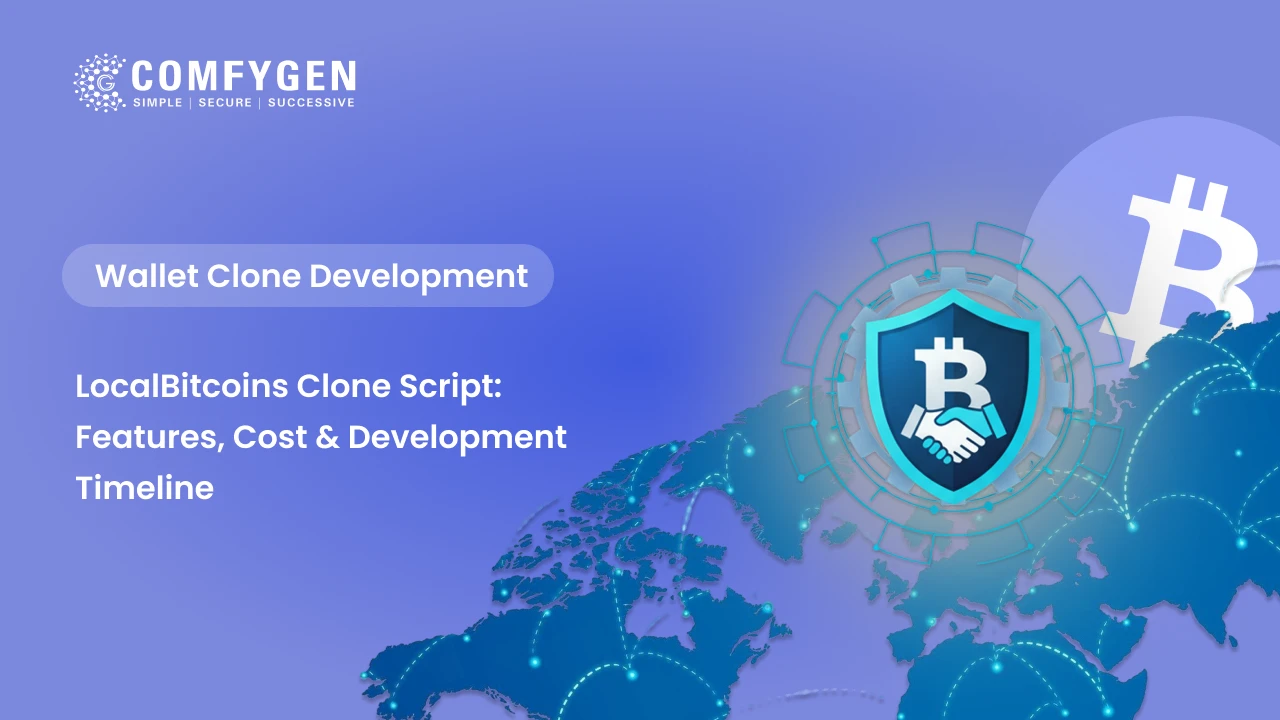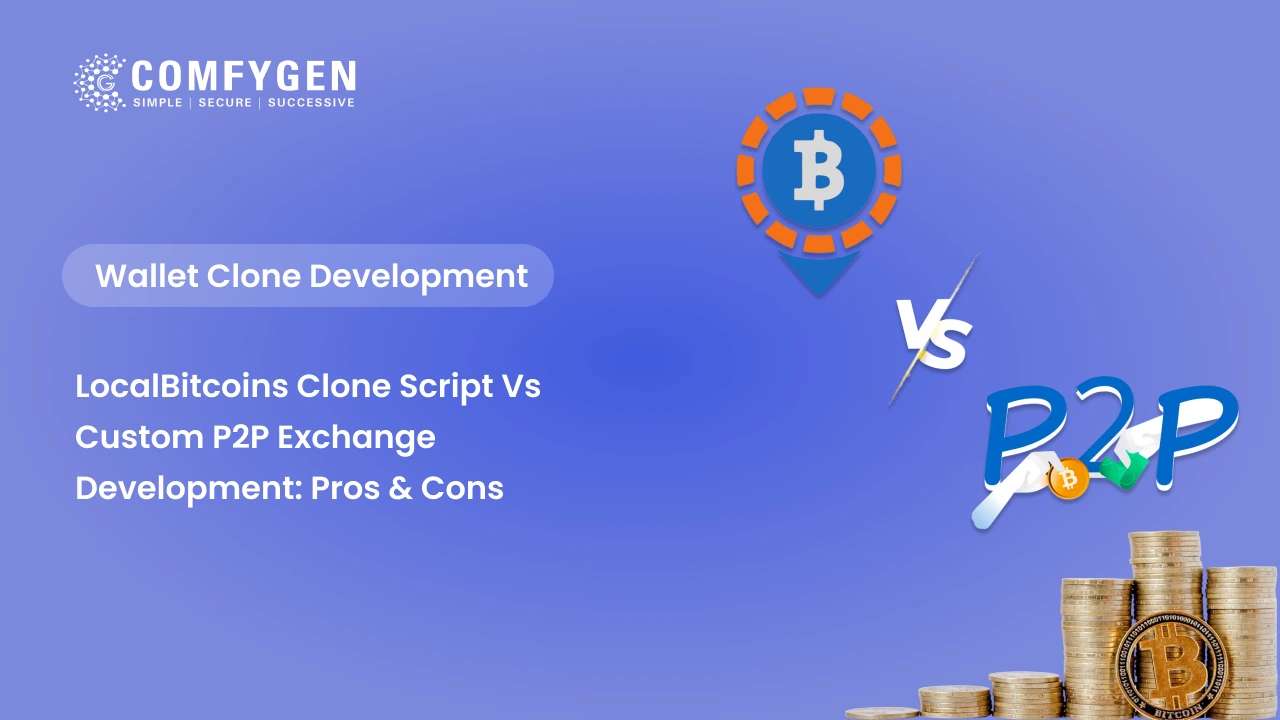How Much Does It Cost To Develop A Healthcare Application?
In our fast-paced world, health plays a crucial role in our daily lives. With the rapid advancement of mobile technology, healthcare has evolved significantly. Today, healthcare applications are not only easily accessible but also user-friendly, putting health management right at your fingertips. However, the journey to develop a top-tier healthcare mobile application can be quite complex.
Many healthcare organizations grapple with a key question: “How Much Does It Cost To Develop A Healthcare Application?“ When determining mobile app development costs—whether healthcare-related or not—three core components come into play:
Thus, the formula for healthcare app development costs is straightforward:
Hours (Effort) × Hourly Rate = Total Development Cost
- Effort: How many employee-hours are required to complete the project?
- Hourly Rate: What is the cost per developer-hour?
- Time Frame: What’s the project’s deadline?
However, calculating effort can be intricate, particularly with tight deadlines. Different app development tasks—like design, coding, and quality assurance—often come with varying rates, adding to the complexity.
Furthermore, navigating compliance with HIPAA regulations and other industry-specific standards makes understanding development costs even more challenging.
So, how can business owners make sense of these variables? How can they ensure they’re comparing accurate estimates when getting quotes from different agencies? Most importantly, how do they guarantee that every dollar spent leads to greater product traction and adoption?
Let’s explore these questions to help streamline your app development cost negotiations. Soon, the question, “How much does it cost to build a healthcare app?” won’t seem so overwhelming.
Key Takeaways
- The average cost of an mHealth app is around $425K until launch, with nearly half of the development expenses—approximately $200,000—typically outsourced to agencies or freelancers.
- For projects lasting over three months, adopting a time-and-materials approach aligned with agile development practices is often the best strategy. Agile’s flexibility allows for quicker adjustments, helping find the ideal product-market fit more efficiently.
- Combining the best aspects of fixed-price and time-and-materials models, innovative systems like Topflight’s Vision-to-Traction System ensure successful outcomes while leveraging agile’s adaptive development process.
This revamped narrative enhances readability while maintaining key points, making it easier for users to grasp critical information about healthcare app development and its associated costs. What do you think?
Importance Of Healthcare Applications
Healthcare applications have transformed how people access medical services. Whether it’s booking appointments, consulting doctors remotely, or ordering medicines online, these apps make healthcare more convenient and accessible for everyone.
With the rise of mHealth solutions, patients can now receive care from the comfort of their homes through telemedicine and remote monitoring tools. These apps are also helping hospitals and clinics streamline their operations, improve patient communication, and manage data more efficiently.
As healthcare demands continue to grow, especially in densely populated countries, mobile apps offer a smart way to reduce pressure on healthcare systems. Trusted healthcare app development company are building custom solutions that support both patients and medical staff, ensuring quicker, more reliable care.
In short, healthcare apps are not just a trend—they’re a vital part of modern healthcare delivery.
Reasons Businesses Are Investing in Healthcare Applications
- Growing Demand: Increased need for accessible healthcare solutions, especially post-pandemic.
- Enhanced Patient Engagement: Apps improve patient involvement in health management through reminders and personalized insights.
- Cost Efficiency: Streamlining processes reduces operational costs and increases efficiency.
- Data Collection and Analytics: Apps gather valuable health data for better decision-making and personalized care.
- Regulatory Compliance: Healthcare mobile app development companies makesure medical apps meet safety and privacy regulations like HIPAA.
- Service Expansion: Businesses can diversify offerings and reach new markets through innovative apps.
- Competitive Advantage: Unique healthcare app features can set businesses apart in a saturated market.
- Support for Remote Care: Medical apps facilitate telemedicine, catering to the rising preference for home-based care.
- Community Building: Healthcare apps foster connections among users, enhancing engagement and loyalty.
- Adaptability: Investing in technology allows businesses to stay relevant in a constantly evolving healthcare landscape.
Business Opportunities in Developing a Healthcare App
1. Telehealth Services Expansion
The COVID-19 pandemic has accelerated the adoption of telehealth, as patients prefer remote consultations to minimize health risks. By integrating telehealth services into your healthcare app, you can offer users the convenience of accessing medical professionals without needing to travel. This not only enhances user experience but also broadens your app’s appeal to a more extensive audience, especially in rural areas where healthcare access can be limited.
2. Chronic Disease Management
Chronic diseases such as diabetes, hypertension, and asthma require ongoing management and monitoring. Creating features tailored to these conditions—like personalized care plans, daily health logs, medication schedules, and educational resources—can empower users to take control of their health. Apps that effectively support patients’ needs in managing chronic conditions can lead to better health outcomes and improved quality of life.
3. Health and Wellness Tracking
Users increasingly seek ways to monitor their health metrics, from physical activity and nutrition to mental well-being. Developing functionalities that allow users to log physical activities, dietary habits, and sleep patterns can provide valuable insights. These metrics can help users set and achieve personal health goals. By integrating analytics, your app can offer customized recommendations based on users’ data, enhancing engagement and motivation.
4. Personalized Health Education
Providing users with access to verified and up-to-date health information is crucial in a landscape filled with misinformation. By including educational modules covering a variety of health topics—like nutrition, exercise, mental health, and disease prevention—your app can serve as a reliable resource. Moreover, offering personalized content based on user profiles can enhance engagement and positively influence users’ health literacy.
5. Integration with Wearable Devices
The market for wearable technology is growing rapidly, largely due to their ability to continuously monitor health data. By integrating your app with devices like fitness trackers, smartwatches, or heart rate monitors, you can offer users real-time insights into their health metrics. This data can be invaluable for personalized health advice and intervention strategies, creating a more comprehensive health management tool.
6. Mental Health Support
Mental health awareness has gained significant traction in recent years, leading to increased demand for mental health resources. Incorporating features such as mood tracking, journaling, mindfulness exercises, and on-demand access to licensed mental health professionals can provide users with critical support. Apps that effectively address mental health can foster a supportive user community and help destigmatize mental health issues.
7. Medication Management
Medication adherence is crucial for effective healthcare management. Developing a robust medication management system within your app can help users track their prescriptions, understand dosages, and receive reminders for refills. Features that assist users in managing side effects or provide information about their medications can enhance overall patient care and safety.
8. Community and Peer Support
Building a community within your app can enhance user engagement and sense of belonging. Community features that allow users to share experiences, advice, or support can foster deeper connections and promote overall wellness. Facilitating peer interaction can also motivate users to stick to their health goals, creating a more engaging environment.
9. Data Security and Privacy Solutions
With increasing concerns over data privacy, especially in healthcare, ensuring robust security measures is vital. Implementing end-to-end encryption, secure user authentication, and compliance with regulations such as HIPAA can build trust and loyalty among users. By prioritizing data security, you position your app as a safe platform for sensitive health information.
10. B2B Opportunities
Collaborations with healthcare providers, clinics, and pharmacies can present significant business opportunities. Designing solutions that integrate seamlessly with existing healthcare systems—such as EHR (Electronic Health Records)—can enhance your app’s utility. Additionally, B2B partnerships can generate new revenue streams while improving patient care through the integrated delivery of services.
Types Of Healthcare Applications
Here are the types of healthcare apps that affect the Healthcare app development cost and who’s people use and are most in use for their features. A table explains healthcare application types.
| Type of Healthcare Application | For Patients | For Doctors | For Healthcare Providers/Organizations |
|---|---|---|---|
| Patient Management Systems | Patient Portals | Practice Management Software | Hospital Management Systems |
| Telemedicine Apps | Telehealth Consultation Apps | Remote Diagnosis and Consultation Tools | Virtual Clinic Platforms |
| Health and Fitness Apps | Fitness Tracking, Diet, and Wellness Apps | Remote Patient Monitoring | Population Health Management Tools |
| Electronic Health Records (EHR) | Personal Health Record Access | Clinical EHR Systems | Enterprise EHR Systems |
| Appointment Scheduling Apps | Doctor Appointment Booking | Schedule Management Systems | Integrated Scheduling Systems |
| Medical Reference Apps | Symptom Checkers, Medication Reminders | Drug Reference, Medical Guidelines, Diagnostic Tools | Medical Knowledge Management Systems |
| Mental Health Apps | Mental Health Support, Meditation, Therapy Apps | Mental Health Assessment Tools | Behavioral Health Management Systems |
| Chronic Disease Management Apps | Diabetes Management, Hypertension Tracking | Chronic Care Management Solutions | Population Health Management |
| Pharmacy Apps | Prescription Refill, Medication Price Comparison | E-Prescribing Systems | Pharmacy Management System |
| Maternity and Parenting Apps | Pregnancy Tracking, Parenting Tips | Prenatal and Postnatal Care Management | Maternal and Child Health Programs |
| Emergency Services Apps | Emergency Alert Systems, First Aid Guides | EMS Coordination Tools | Emergency Response Management Systems |
| Health Education and Awareness | Health Literacy, Disease Information, Preventive Tips | Continuous Medical Education (CME) | Public Health Education Campaigns |
| Lifestyle and Wellness Apps | Stress Management, Sleep Tracking, Nutrition Guidance | Holistic Patient Wellness Tools | Workplace Wellness Programs |
| Genetic and Personalized Medicine | DNA Analysis, Personalized Health Insights | Genomics Tools, Personalized Treatment Planning | Precision Medicine Platforms |
| Rehabilitation Apps | Physical Therapy Guidance, Post-Surgery Recovery Support | Rehabilitation Tracking and Management | Rehabilitation Program Management |
| Insurance and Billing Apps | Health Insurance Management, Claim Tracking | Billing and Coding Systems | Integrated Billing and Revenue Cycle Management |
Want to Develop Best Healthcare Mobile Application?
Cost Considerations for Healthcare App Development with Emerging Technologies in 2025
The cost to develop a healthcare app can significantly vary based on the incorporation of emerging technologies. Understanding these healthcare app development costs is essential for organizations aiming to leverage advanced technologies to enhance healthcare delivery. Below are key factors influencing costs in the context of emerging technologies.
1. Type of App and Emerging Technologies
Simple Apps:
- Functionality: Basic features, such as health tracking, reminders, and simple user interfaces.
- Cost: Typically ranges from $10,000 to $50,000. While basic functionality is inexpensive, incorporating technologies like IoT for health monitoring may increase costs.
Medium Complexity Apps:
- Functionality: Incorporating user authentication, telehealth services, and integration with wearable devices or AR/VR elements for enhanced patient engagement.
- Cost: Ranges from $50,000 to $150,000. Adding AI/ML features for predictive analytics or personalized health recommendations can push the costs toward the higher end.
Advanced Apps:
- Functionality: Comprehensive healthcare applications featuring technologies such as AI-driven analytics, EHR integration, Blockchain for secure transaction tracking, and the Metaverse for virtual consultations.
- Cost: These apps can exceed $150,000 and may reach $500,000 or more depending on the complexity and depth of technological integration. GenAI for providing tailored health information can further influence costs.
2. Emerging Technologies Impacting Costs
- AI/ML: Integrating AI and ML capabilities for features like predictive analytics, personalized treatment plans, and chatbots can significantly enhance an app’s functionality but also increase costs due to the need for specialized knowledge and algorithms.
- AR/VR: Using AR/VR for virtual therapy sessions or immersive patient education experiences can elevate user engagement and outcomes, but the costs associated with developing VR environments and AR interfaces can be substantial.
- Blockchain: Implementing Blockchain technology for secure data sharing and transaction tracking enhances data security and transparency, potentially adding $20,000 to $50,000 to the development cost due to technical complexity.
- Metaverse: Developing apps aimed at virtual healthcare experiences in the Metaverse may require advanced 3D modeling and immersive technologies, which can lead to higher costs, particularly if real-time interactions are involved.
- GenAI: Incorporating Generative AI for tasks such as creating personalized health recommendations or generating educational content contributes to app complexity and costs, potentially adding thousands in development efforts.
- IoT: Integrating IoT devices for real-time data collection and monitoring can enhance app functionality, especially in chronic disease management. However, this requires robust infrastructure and testing, which can increase overall costs.
3. Development Team and Expertise
- Specialized Development Team: Hiring a team with expertise in emerging technologies like AI, IoT, and Blockchain may incur higher upfront costs. The expertise required to implement these advanced features can boost the overall cost to develop a healthcare app.
- Team Composition: Engaging specialists such as data scientists for AI and ML algorithms or Blockchain developers can increase staffing costs, impacting the overall budget.
4. Maintenance and Updates
- Ongoing Requirements: Regular maintenance is crucial, especially for apps incorporating emerging technologies to ensure compliance, security, and functionality. Technologies like IoT and Blockchain often require more frequent updates.
- Cost: Maintenance could cost 15-25% of the initial development cost annually. With technologically complex applications, annual maintenance might even trend higher due to the intricacies involved.
5. Geographical Impact
- Cost Variation: The cost to develop a healthcare app can differ significantly based on geographic location. Development teams in North America and Western Europe usually charge more (averaging $100-250/hour) compared to teams in Eastern Europe or Asia (averaging $25-75/hour).
6. Regulatory Compliance
- Legal Considerations: Ensuring compliance with healthcare regulations (e.g., HIPAA, GDPR) is critical, particularly for apps leveraging AI and Blockchain. Security measures must be robust, contributing to higher costs.
- Cost: Budgeting for legal consultations and compliance needs can add an additional $5,000 to $20,000 or more to development costs, especially for apps using sensitive health data.
7. Advanced Healthcare App
Features:
- Comprehensive patient management systems
- EHR integration
- Real-time health monitoring
- Extensive telehealth capabilities
- AI-driven analytics and chatbots
Emerging Tech:
- Blockchain for secure data transactions
- AR/VR for virtual consultations and training
- Full-fledged IoT integration for continuous health tracking
- GenAI for generating tailored health advice
- Metaverse features for immersive experiences
Approximate Cost of healthcare application development: $150,000 – $500,000+
Detailed Cost Breakdown by Feature
| Feature | Simple | Medium | Advanced |
|---|---|---|---|
| Basic Health Tracking | $10,000 – $20,000 | $15,000 – $30,000 | $40,000 – $100,000 |
| User Login/Authentication | $5,000 – $10,000 | $7,000 – $15,000 | $10,000 – $20,000 |
| Telehealth Services | N/A | $20,000 – $50,000 | $50,000 – $100,000 |
| Wearable Device Integration | N/A | $10,000 – $20,000 | $20,000 – $40,000 |
| AI/ML Integration | N/A | $10,000 – $30,000 | $50,000 – $100,000 |
| IoT Integration | N/A | $10,000 – $20,000 | $20,000 – $50,000 |
| AR/VR Features | N/A | $10,000 – $20,000 | $30,000 – $100,000 |
| Blockchain Implementation | N/A | N/A | $20,000 – $50,000 |
| GenAI Features | N/A | N/A | $10,000 – $30,000 |
| Metaverse Integration | N/A | N/A | $30,000 – $100,000 |
| Compliance and Legal Fees | $5,000 – $10,000 | $5,000 – $15,000 | $10,000 – $20,000 |
Total Estimated Development Cost for Healthcare Applications
- Simple Healthcare App: $10,000 – $50,000
- Medium Complexity Healthcare App: $50,000 – $150,000
- Advanced Healthcare App: $150,000 – $500,000+
Healthcare Application Development Cost Based On Different Types
Telemedicine Apps
Telemedicine applications allow individuals to connect with qualified doctors and receive medical advice via telecommunication channels. This innovation significantly reduces wait times for healthcare advice, particularly benefiting patients in remote areas who may struggle to access medical services.
Key Features of Telemedicine Apps:
- Virtual Consultations: Schedule and conduct video calls with healthcare providers.
- Prescription Services: Receive electronic prescriptions directly after consultations.
- Patient Management: Maintain health records and follow-up appointments within the app.
The estimated cost for developing a telemedicine app typically ranges from $70,000 to $250,000, depending on the desired complexity and features.
Wellness Tracking Apps
Wellness tracking apps are designed to monitor users’ health vitals and overall well-being. These applications empower users to manage their health proactively by tracking key metrics and offering insights into lifestyle choices.
Key Features of Wellness Tracking Apps:
- Health Metrics Monitoring: Track vitals such as heart rate, sleep patterns, and activity levels.
- Personalized Recommendations: Provide users with tailored wellness tips based on tracked data.
- Goal Setting: Allow users to set and monitor personal health goals.
The development cost for wellness tracking apps generally falls between $40,000 and $120,000, influenced by the complexity and range of features.
Medical Billing Apps
Medical billing apps have become invaluable tools for both patients and healthcare professionals. These applications enable users to easily initiate, receive, and manage payments, while also providing options to store virtual receipts for seamless transactions. This convenience is essential in today’s digital healthcare environment.
Key Features of Medical Billing Apps:
- Custom Bill Generation: Tailor bills to meet specific patient needs.
- Automated Billing: Streamline payment processes with automated invoicing.
- Discount Adjustment: Easily manage and apply discounts as necessary.
- Audit Support: Facilitate compliance and transparency with thorough auditing capabilities.
- Credit Billings: Offer flexible payment options and credit management for users.
The estimated cost for developing a medical billing app typically ranges from $50,000 to $100,000, depending on the features and complexity.
Medical Networking Apps
Medical networking applications connect healthcare professionals, enhancing communication and collaboration within the industry. These platforms foster a community where doctors and specialists can share insights and referrals, ultimately improving patient care.
Key Features of Medical Networking Apps:
- Professional Profiles: Create profiles to showcase qualifications and expertise.
- Discussion Forums: Facilitate knowledge exchange between professionals.
- Referral Systems: Simplify the referral process to other specialists.
The cost of developing a medical networking app typically ranges from $15,000 to $35,000, making it one of the more accessible healthcare app options.
Reminder Apps
Reminder apps are designed to assist patients in adhering to their medication schedules, enhancing their chances of recovery. These applications send timely alerts, helping patients stay on top of their prescriptions and fostering better health outcomes.
Key Features of Reminder Apps:
- Medication Alerts: Notifications for taking medication on time.
- Prescription Tracking: Keep track of refills and renewals.
- User-friendly Interface: Easy navigation for all age groups.
- Integration with Health Records: Link to electronic health records for comprehensive management.
The development cost for a reminder app generally falls between $40,000 and $80,000, influenced by the complexity and features implemented.
Electronic Health Records (EHR) Apps
Electronic health records (EHR) apps allow for the secure storage and easy access of a patient’s medical history. These applications streamline the tracking of health progress and support doctors in suggesting effective treatment plans. EHR apps can also be customized for hospitals or clinics to manage patient records efficiently.
Key Features of EHR Apps:
- Data Security: Ensure the confidentiality of sensitive patient information.
- Interoperability: Seamlessly integrate with other healthcare systems.
- Customizable Dashboards: Provide tailored views for different healthcare providers.
The cost of developing an EHR app typically ranges from $60,000 to $180,000, depending on customization and functionality.
Fitness Apps
Fitness apps offer diverse features aimed at health tracking and performance improvement, catering to health enthusiasts and athletes alike. These apps are integral for those aiming to maintain an active lifestyle, providing tools for workout tracking, diet management, and coach interaction.
Key Features of Fitness Apps:
- Workout Logging: Track exercises, sets, and repetitions.
- Nutrition Tracking: Monitor dietary intake and caloric expenditure.
- Social Features: Connect with friends for motivation and accountability.
The estimated cost to build a fitness app generally falls between $120,000 and $400,000, reflecting the complexity and variety of features available.
E-Prescription Apps
E-prescription apps facilitate the creation and management of electronic prescriptions, allowing both patients and doctors to access prescriptions seamlessly. This functionality improves the medication dispensing process and enhances patient convenience.
Key Features of E-Prescription Apps:
- Prescription Management: Simplify the tracking and refilling of prescriptions.
- Secure Access: Enable patients to access their prescriptions from any device.
- Integration with Pharmacies: Streamline the communication between doctors and pharmacies.
The development cost for an e-prescription app typically ranges from $35,000 to $50,000, depending on the features integrated.
| Healthcare App Types | Cost |
|---|---|
| Telemedicine App | $50,000- $200,000 |
| Wellness Tracking App | $30,000- $100,000 |
| Medical Networking App | $10,000- $30,000 |
| Electronic Health Records (EHR) App | $50,000- $150,000 |
| Fitness App | $100,000 – $300,000 |
| E-Prescription App | $30,000- $45,000 |
Want To See A Demo Of A Healthcare App?
Get A DEMO
Factors Influencing Development Costs Of Healthcare Applications
Application Complexity
The cost of healthcare app development can depend heavily on the level of application complexity. The simpler the application and the architecture of the application development in healthcare, the lesser the healthcare app development cost and effort put into healthcare app development.
| App Complexity | Cost |
|---|---|
| Simple App | $8,000- $45,000 |
| Medium App | $50,000- $100,000 |
| Complex App | $120,000- $250,000 |
Features and Functionalities
The features and functionalities of the healthcare app development also determine the way the cost comes out. The more features and more advanced features are incorporated into the app, the higher the cost of healthcare app development.
Design and User Experience
The design and user experience of the application decide how well it performs and how popular it becomes. The final cost of health app development also depends on the front end and the user experience design of the application.
Integration with Third-Party Systems
The level of integration the healthcare app development has with APIs and third-party systems also determines the high cost of healthcare app development for the client.
Compliance and Security Requirements
The compliance and security requirements of the healthcare app can be very demanding and a considerable chunk of the development budget can go into ensuring that the app is secure and legally compliant.
Platform Choice (iOS, Android, Web)
The platform you choose to develop the healthcare app for initially can also be a deciding factor in the cost of healthcare app development. A web app development process will cost less than a native healthcare app development process. However, most app development experts suggest getting cross-platform development, which can cost more.
| Platform | Development Timeline | Cost |
|---|---|---|
| Android Application | 2- 6 months | $8,000- $50,000 |
| iOS Application | 3- 8 months | $30,000- $100,000+ |
| Web | 7-12 months | $15,000- $70,000 |
| Cross-Platform | 3-12 months | $15,000- $80,000 |
Development Team Location and Expertise
The hourly rate of a healthcare app development team is determined by factors such as their location, experience, and skill set.
Cost Comparison by Region
| Region | Healthcare App Development Cost (per hour) |
|---|---|
| India | $15- $35 |
| US | $31- $80 |
| Dubai | $30- $50 |
| Canada | $50- $200 |
| Europe | $80- $150 |
Cost Breakdown By Healthcare App Development Phases
Research and Planning
The market research and planning stage is very important as it provides the initial material and idea for investing in healthcare app development. The research and planning stage is where the team of healthcare app developers and consultants conduct surveys and research into the niche of healthcare app type that you are trying to develop and then collect data for analysis and complete development of the healthcare app idea.
The collection of data and analysis can give direction to the healthcare app development process. The research and planning stage is the first stage where the market research and analyst team is involved.
Healthcare App Development Design
The healthcare app development team goes into the design phase after the initial market research. The initial data helps the team of comfygen select the target audience for the healthcare app so that the design phase can start.
The first step of the design phase is wireframing and creating a roadmap so that the development can follow a plan. The initial prototype and wireframe have the basic features, and then the front-end developers and UI/UX designers create the final design layout of the healthcare app as it will seem to the user.
The design is very important as it determines how people and doctors interact with the app for their benefit.
Custom Healthcare App Development
The development phase of the healthcare application is where the backend developers and software development experts of Comfygen collaborate to create the backend architecture and framework to support the front-end features.
The backend of the healthcare app development process is secured with security layers, and it is perfected during the development phase. The code is written by coders and mobile app developers of the healthcare app development agency so that the features are functional and high-performance.
The development phase fleshes out the whole app functionality and marries the front end with the back end for overall performance.
Testing and Quality Assurance
After the mHealth app development, the team of testers and software experts work on the project to uphold testing standards and complete the quality assurance standards. The software code and the usability of the front end are tested by software testers and beta testers before the healthcare app is deployed.
Comfygen puts a lot of stress on quality assurance and improvement of the application in its MVP form before it is deployed in the market. The testing cycles and tools used help root out inconsistencies and bugs in the software code and features so that minor errors and issues are resolved.
This ensures that the app will need less effort for post-deployment support.
Deployment and Maintenance
After the development is complete, the application is ready to be deployed in the target market. A good mobile development company also helps you in marketing the healthcare application to the right target audience.
The deployment is done phase by phase so that feedback is collected effectively and initial improvements are made. The application is also given post-deployment support and maintenance so that the application can run with no to minimal issues after its deployment.
API Integration
Once the initial app is created and deployed, the application is then improvised, and its features are updated with important API integrations. API integrations can create more features and give people a lot of flexibility in how they use the application for their health needs. The healthcare app development company swiftly integrates the API process.
Technology Stack
The cost of healthcare app development also depends on the technology stack used in the process of healthcare app development. The cost of healthcare mobile app development comes from the tools and techniques used.
Using open-source tools and free tools can decrease the cost, but for proper development, you need to use premium paid tools. If you need custom healthcare app development solutions, the cost of development will be higher.
The tech stack has to be in line with the security levels and compliance requirements needed to build a healthcare application.
Here is a table outlining the typical tech stack for building a healthcare application:
| Technology Layer | Technologies | Description |
|---|---|---|
| Front-End | HTML5, CSS, JavaScript | Core technologies for building the user interface and user experience. |
| React Native | A framework for building native apps using React, allowing for cross-platform development. | |
| Back-End | Node.js | A JavaScript runtime built on Chrome’s V8 engine, used for building scalable network applications. |
| Express.js | A web application framework for Node.js, designed for building web applications and APIs. | |
| Database | MongoDB, PostgreSQL, MySQL | Databases used for storing and managing application data. |
| API | REST, GraphQL | Protocols for communication between the front-end and back-end services. |
| Authentication | OAuth, JWT (JSON Web Tokens) | Technologies for user authentication and authorization. |
| Cloud Services | AWS, Google Cloud, Azure | Cloud platforms for hosting, storage, and other services. |
Read More: The Comprehensive Guide To Pharmacy App Development
Hidden And Repeat Costs
It is important to keep in mind the hidden and repeatable costs that can significantly impact long-term expenses while budgeting for healthcare app development. These healthcare app development costs are explained in detail in a table.
| Cost Category | Cost | Description |
|---|---|---|
| Maintenance and Updates | $5,000 – $25,000 (annually) | Maintenance and updates is important to maintain and update a healthcare app development to make sure that it is functional, secure, and conformable with the latest operating systems and devices. This includes fixing bugs, adding new features, improving performance, and making sure of differences with evolving regulations. Regular updates help maintain user engagement and satisfaction. |
| Hosting and Server Costs | $1,000 – $5,000 (monthly) | Hosting and server depending on the healthcare app’s usage, storage needs, and number of active users. These costs cover the hosting provider’s cost for maintaining the server infrastructure, making sure uptime, and providing bandwidth. Choosing a good hosting service is important to make sure fast and secure access to healthcare app data and services. |
| Customer Support | $2,000 – $10,000 (monthly) | Providing top-notch customer support is important for user satisfaction and keeping. This includes having a dedicated team to address user questions, resolve issues, and provide support with the healthcare app’s functionality. Costs can differ depending on the type of support provided and the amount of user inquiries. |
| Licensing Fees | $1,000 – $5,000 (annually) | Licensing fees cover the cost of using integrated software, tools, and libraries in the app. This can include a payment gateway, analytics tool, health monitoring API, and compliance solutions. These fees make sure that your healthcare app’s value is met and that it complies with industry standards and regulations. |
Read More: A Complete Guide on Doctor Appointment App Development
Affordable Costs And Reasons To Choose Comfygen For Healthcare Application Development
Competitive Pricing without Compromising Quality
Comfygen provides highly competitive pricing for healthcare app development while maintaining throw quality. Comfygen understands the budget requirements of healthcare providers and makes sure you receive top-notch healthcare app development services.
Expertise in Healthcare Solutions
Comfygen is experienced in healthcare application development solutions and understands the unique challenges and needs of the healthcare app development industry. Comfygen’s best healthcare app developers team is experienced in creating healthcare app development solutions that are compliant with healthcare regulations and standards. Comfygen creates attractive healthcare applications using the latest technologies and facilities. Comfygen stays up to date with the industry’s trends and advancements to integrate the most effective and efficient solutions into healthcare apps.
Customized Solutions to fit your budget
We work together with you to understand your specific needs and budget requirements. Comfygen provides customized solutions and aligning key features, aligning development costs with your financial plans.
Efficient Development Process
Comfygen’s streamlined development process maximizes efficiency and minimizes costs. Comfygen minimizes development time through agile systems and effective project management that delivers high-quality healthcare apps on time, within budget.
Focus on Security and Compliance
Comfygen gives priority to the security of healthcare applications by making sure it follows regulations like HIPAA and GDPR. Comfygen strong security updates make sure patient data is secure and users gain trust.
No Hidden Costs
Transparency is the basis of Comfygen strategies. Comfygen provides clear and detailed cost breakdowns from the start, helping to avoid any hidden fees or unexpected costs. You can believe that the upfront cost is what you pay, and there will be no surprises along the way.
Value-Added Services
Comfygen provides cost-added services like ongoing support, maintenance and updates at affordable prices, beyond development. Comfygen makes sure your application remains up-to-date and functional after launch and making sure you get long-term value and support for your investment.
Proven Track Record
Comfygen has a strong portfolio of successful healthcare applications. Comfygen’s proven track record demonstrates the ability to deliver high-quality, reliable and scalable solutions that meet clients’ expectations and exceed them.
If you want to develop your own healthcare application
Contact us:
Whatsapp: +91-958-786-7258
Email: [email protected]
Conclusion
If you have decided to build a health app, you are trying to go into a profitable but high-competition sector. When starting a healthcare app development project, choose a company that has expertise in the area and has had multiple projects in the healthcare sector in the past. Understanding the trends and demands of the healthcare application sector is important before embarking on this profitable journey that also has a social impact.
FAQs
How do we ensure that the healthcare application is compliant with industry standards?
For healthcare application development, the software development team has to focus on meeting the regulations of HIPAA, GDPR, and the health regulations from different states so it is legal to be used across the country.
What are the essential features of a good healthcare application?
What are the challenges faced by a software development team during the development of a healthcare app?
How do you ensure that data privacy rules are upheld in a healthcare application?
What are the best practices to follow for healthcare application development?
What are the key features to consider when developing a healthcare app?
Key features to consider include user authentication, telehealth services, health tracking, integration with wearables, AI for personalized insights, IoT for real-time monitoring, AR/VR for interactive experiences, and compliance with healthcare regulations. Investing in these features ensures the app meets user needs and provides high-quality service.
How does incorporating emerging technologies like AI and Blockchain improve healthcare apps?
Integrating AI allows for predictive analytics and personalized health recommendations, enhancing patient care. Blockchain ensures secure patient data sharing and contributes to transparency. Other technologies like IoT facilitate real-time health monitoring, and AR/VR can create immersive training or consultation experiences, leading to better patient outcomes and engagement.
What is the approximate cost to develop a healthcare app with advanced features?
The cost can vary widely based on features and complexity. A simple app may cost between $10,000 and $50,000, while a medium-complexity app can range from $50,000 to $150,000. Advanced apps that integrate multiple technologies can exceed $150,000 and may even reach $500,000 or more, depending on the functionalities and integration required.
How do compliance and regulatory requirements affect the development cost of a healthcare app?
Compliance with healthcare regulations like HIPAA and GDPR is essential and can add significant costs to app development. Budgeting for legal consultations, security measures, and ongoing compliance updates is vital. Ignoring these requirements can lead to heavy penalties and loss of trust, making it crucial to factor these into the overall cost.
Why is Comfygen the best choice for healthcare app development?
Comfygen Private limited is an excellent choice for healthcare app development due to its expertise in emerging technologies, deep industry knowledge, and commitment to compliance and security. The company boasts a talented team experienced in building customizable, user-friendly healthcare applications that enhance patient engagement and streamline operations. By partnering with Comfygen, healthcare organizations can ensure a robust, secure, and innovative application tailored to meet their specific needs.

Mr. Saddam Husen, (CTO)
Mr. Saddam Husen, CTO at Comfygen, is a renowned Blockchain expert and IT consultant with extensive experience in blockchain development, crypto wallets, DeFi, ICOs, and smart contracts. Passionate about digital transformation, he helps businesses harness blockchain technology’s potential, driving innovation and enhancing IT infrastructure for global success.
Based on Interest
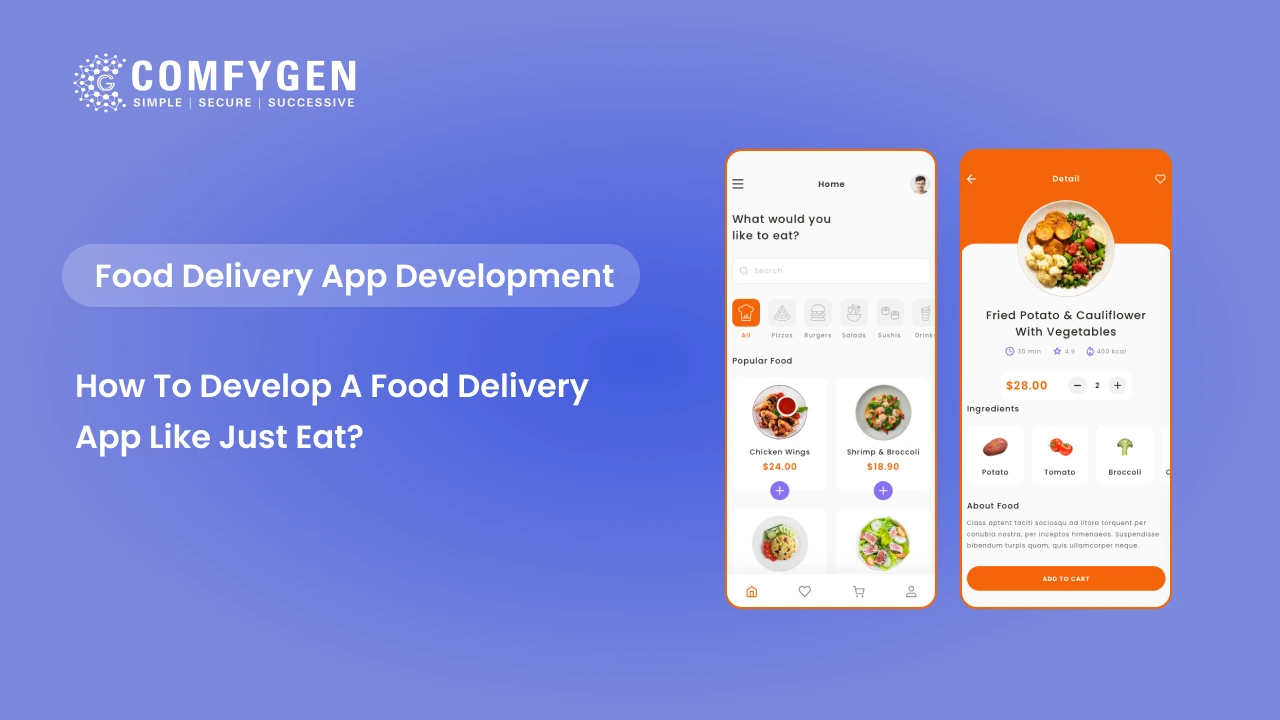
How to Develop a Food Delivery App Like Just Eat
The food delivery industry has experienced exponential growth in recent years. With users preferring convenience over traditional dining, businesses are investing heavily in food delivery app development. One…

